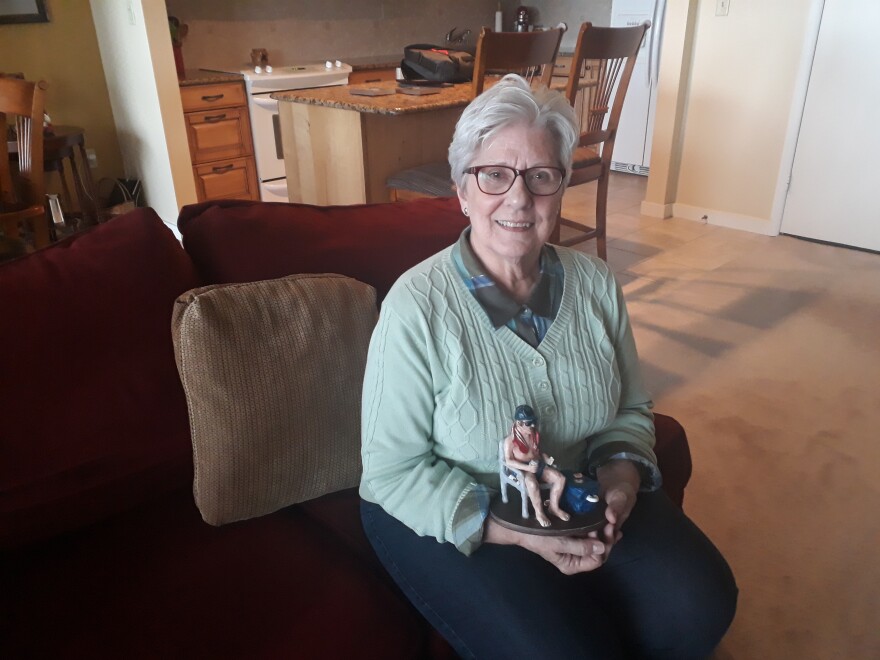Pennsylvania Attorney General Josh Shapiro has taken legal action against UPMC, western Pennsylvania’s largest health care system, in an effort to force it to give in-network care to customers of one of the region’s largest insurers.
If this legal action is not successful, come July, thousands of western Pennsylvanians will have to choose between their UPMC doctors and their Highmark insurance.
In 2011, Highmark insurance purchased the financially troubled West Penn Allegheny Health System, which became Allegheny Health Network. Highmark's acquisition put it in direct competition with UPMC, which decided the following year to not renew its contract with Highmark insurance.
The state intervened in 2014, forcing UPMC to give in-network access to certain groups of Highmark customers until July 2019. In that time, these rivals have each dramatically expanded medical services.
But if you ask Maddie Barkley of Mt. Lebanon, these additional resources don't matter if patients don’t have in-network access. It's something she found out a couple years ago after her late husband Glenn became ill.
“He was sitting in that recliner,” Berkley gestures across the room to Glenn’s chair, “having what I thought was a stroke. Arms extended, rigid, breathing hard.”
Glenn was actually having a seizure. Emergency responders took Glenn to UPMC Mercy where he diagnosed with glioblastoma, the same kind of incurable brain cancer that killed Sen. John McCain.
About a week after arriving at Mercy, Barkley said hospital staff strongly recommended that Glenn be treated by a doctor at UPMC Shadyside’s Hillman Cancer Center, a nationally recognized facility. The Mercy staff also advised the Barkleys to not make an appointment, but rather go straight to that hospital’s emergency room.
“I think that in some respects, without telling us, they knew if you come in through the emergency room they have to take care of you,” she said. “I think that’s what they were hoping would happen, that they would admit hm.”
But Barkley said when they arrived at Shadyside, a non-profit hospital, they were turned away because Glenn had Highmark insurance.
“You have to leave, it was that blunt,” she said. “How can you do that? How do you do that?”
It is against the law for a hospital to deny care to someone who is having a medical emergency, but Barkley said Glenn was told he was stable enough that his very aggressive brain cancer didn’t qualify as a crisis.
The Barkleys eventually found an in-network oncologist and neurosurgeon, who cared for Glenn until he died in January of last year. Barkley said Glenn would have died regardless of where her got treatment, but she’s upset by the way UPMC turned her husband away, as it caused unnecessary stress and fear.
“UPMC has engaged in a number of acts, that are both very aggressive, that appear to be almost gratuitously cruel to patients,” said Martin Gaynor, a health care economist at Carnegie Mellon University.
The Barkleys aren’t alone in getting the cold shoulder from UPMC. According to testimony collected by Allegheny County Controller Chelsa Wagner, many people who've had reoccuring cancer or other long-term medical issues are being told to go elsewhere.
UPMC said it can't comment on the situation with Glenn Barkley for patient privacy reasons, and declined an interview for this story, but did send a written statement saying that its role in the insurance market has provided consumers more choices.
“There’s a lot of ... evidence," said Gaynor, "that more competition in health care markets leads to lower prices. There's also evidence that quality of care is better, where health care providers face more competition. That’s also true with regard to health insurance premiums, that they’re lower.”
But Gaynor said it appears UPMC is trying to leverage its larger provider network to draw insurance consumers away from Highmark, thereby crushing the competition.
Though it’s smaller, Highmark argues it’s in a strong position and capable of handling even the most complex medical cases.
“The Allegheny Health Network is easily one of the best systems on the East Coast, maybe one of the best in the nation,” said John Lufburrow, Highmark's director of member engagement.
Highmark has also said in the past that it wants its customers to have choice in providers. Lufburrow added that, despite the impending split, the customer retention rate at Highmark insurance has been 96 percent.
But one person Highmark has lost is Maddie Barkley. She decided to switch her insurance to UPMC last fall.
“If some particular kind of illness were to befall me, who’s going to have the most likely option of care? And right now, it is UPMC,” said Barkely.
WESA receives funding from UPMC and Highmark.





